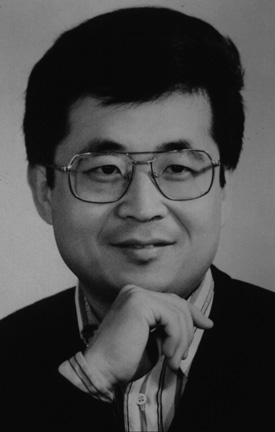 |
SEPTEMBER 29TH - OCTOBER 8TH 2000 |
|
organised by  (ISCM Luxembourg Section) Information: info@worldmusicdays.com |
Julian J. Yu

Born in Beijing in 1957, Julian Yu studied composition at the Central Conservatory of Music
in Beijing, and later joined the teaching staff there. From 1980 to 1982 he studied at the
Tokyo College of Music under Joji Yuasa. He migrated to Australia in 1985. In 1988 he was
selected for a Composition Fellowship at Tanglewood, where he studied under Hans Werner
Henze and Oliver Knussen, and was awarded the Koussevitzky Tanglewood Composition
Prize for that year. He has written many works for orchestra, instrumental and choral groups,
theatre and opera. Julian Yu's music has won over 20 awards from 1981 to 1994 in the USA,
Japan, Italy, France, P.R. China, and Australia. In 1991 and 1994, an international jury
unanimously selected his work for the Paul Lowin Orchestral Prize. His music has been
performed by many orchestras and ensembles worldwide, and has featured at international
contemporary music festivals such as ISCM World Music Days.
Wu-Yu
The ancient Chinese word "Wu-Yu" refers to rain-making ceremonies performed in times of
drought. The term was used flexibly, denoting sometimes the ceremony itself, sometimes the
place in which it was held, and sometimes the music and dance associated with the ceremony.
This composition is conceptual rather than programmatic: it does not seek to describe the
outer details of such a ceremony, but rather to capture its essence. It comprises three
sections. The first ("ascending part") features two waves of sound, one in the strings and the
other one played by the horns and woodwinds (minus the oboe). They begin softly, but
steadily increase in magnitude and strength until they reach enormous propositions. In the
second section (the "level part"), the waves give way to a single haunting melodic line played
by solo oboe, after which is heard a persistent E in the strings. A sudden thunder clap heralds
the beginning of the third section (the "descending part"), in which the unison E gradually
subsides into peace and tranquillity.